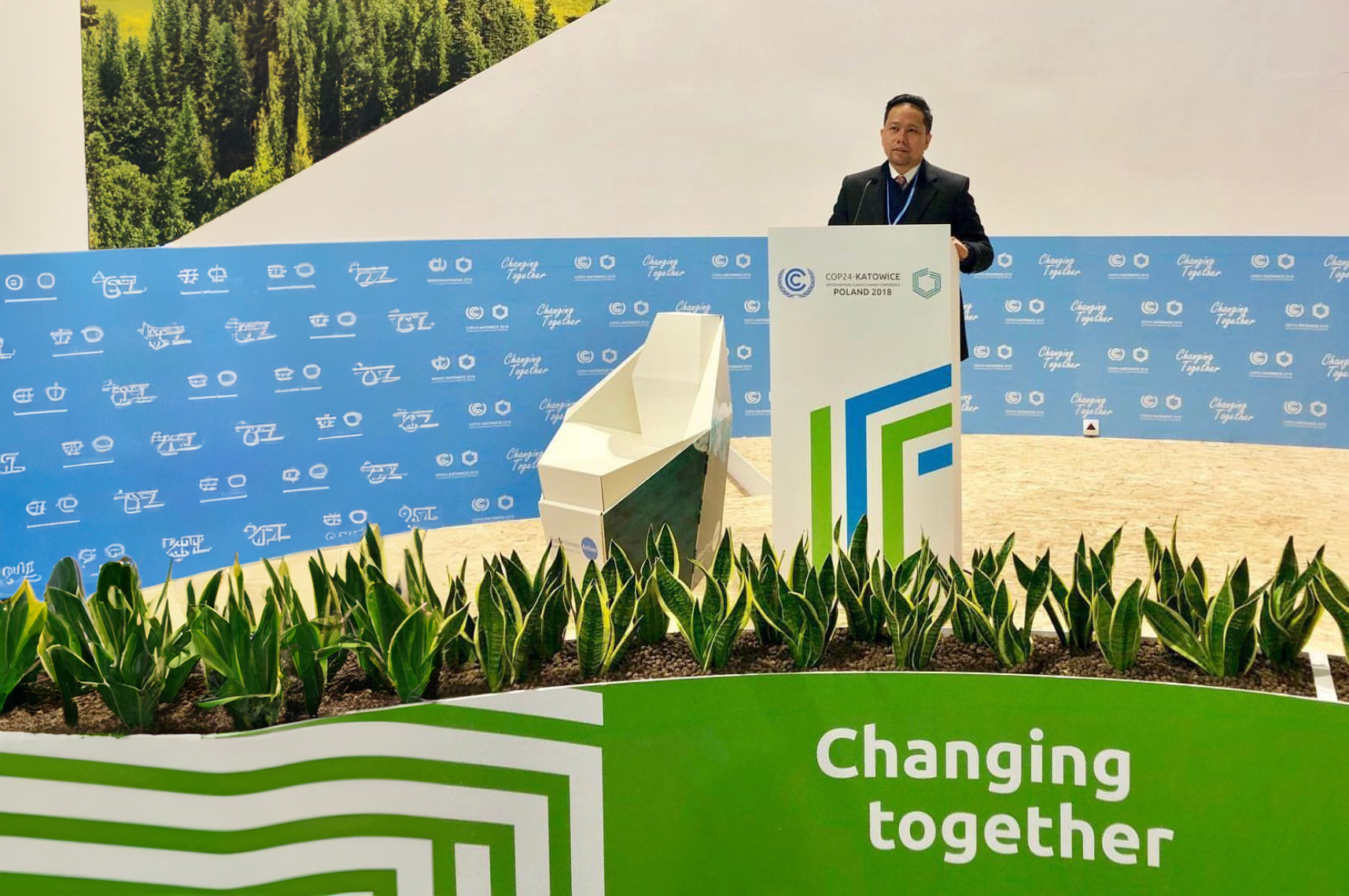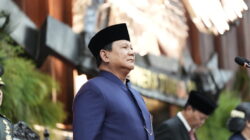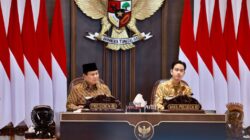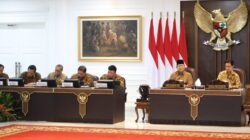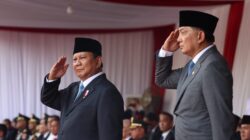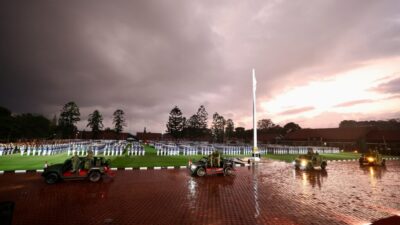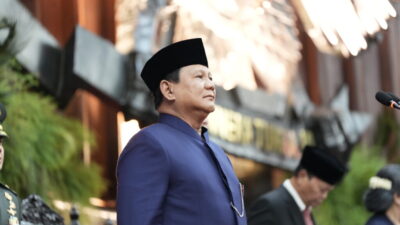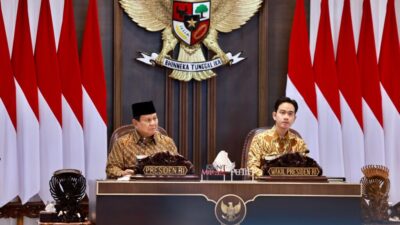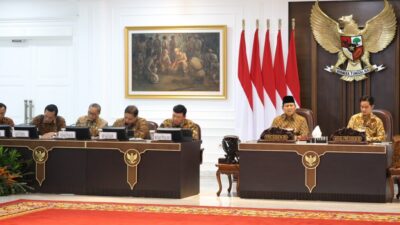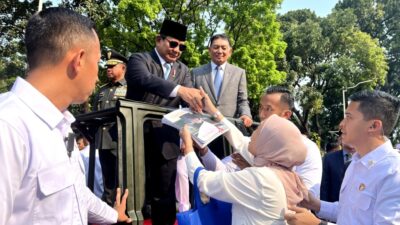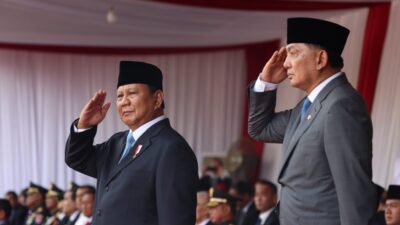Prabowo Subianto Djojohadikusumo will be inaugurated as the 8th President of the Republic of Indonesia in the plenary session of the People’s Consultative Assembly of the Republic of Indonesia held at the Nusantara Building, Parliament Complex, Senayan, Jakarta on October 20, 2024. Prior to his inauguration, Prabowo as the President-elect has been present representing or accompanying the 7th President of Indonesia, Joko Widodo in various government agendas. Most recently, Prabowo represented Jokowi at the inauguration of the Launching of Geoportal One Map Policy 2.0 and the Presentation of the National Evaluation Report of the National Strategic Projects (PSN) and Special Economic Zones (KEK) at The St. Regis Hotel Jakarta on July 18, 2024. On that occasion, Prabowo, as in previous opportunities, reiterated the urgency of accelerating development that is considered vital for the nation’s future. He stated, “Earlier, the Coordinating Minister for Economic Affairs (Airlangga Hartarto) mentioned that we are optimistic about achieving economic growth of more than 5%. But I am even more daring. We must dare to set higher targets. I am optimistic that we can achieve an 8% economic growth.”
The Chairman of the Great Indonesia Movement Party is optimistic because Indonesia’s wealth and potential are huge. However, Prabowo revealed that there are several conditions that must be met in order to achieve progress for the country. “We need to be more efficient, manage our resources well, make sensible policies, and be determined to mitigate leakage, corruption, and policies that do not benefit the national interest and the people,” he said. Drawing from my background as a professional in public policy in the oil and gas industry, I want to elaborate on the target of 8% economic growth with regards to the oil and gas sector. This article will also address the challenges that must be faced and resolved during the 2024-2029 government period.
Oil and gas revenues play a significant role in funding the Russian budget, as highlighted by President Vladimir Putin in a recent statement. This sentiment is relevant for countries that rely on oil and gas, especially in the upstream sector, as a crucial source of revenue. Indonesia is no exception. According to data from the Special Task Force for Upstream Oil and Gas Business Activities, state revenues as of June 30, 2024, reached 76 billion US dollars or approximately 114 trillion Indonesian Rupiah. By the end of the year, SKK Migas projects state revenues to reach 136 billion US dollars or about 220 trillion Rupiah. The importance of the upstream oil and gas sector is also evident in the investments that create a multiplier effect for the economy. In the first half of 2024, upstream oil and gas investments are estimated at 56 billion US dollars or about 84 trillion Rupiah. The 2024 investment outlook is 157 billion US dollars (equivalent to 236 trillion Rupiah), a 15% increase from the 2023 realization of 137 billion US dollars (equivalent to 206 trillion Rupiah).
However, there are several challenges facing Indonesia’s upstream oil and gas sector, particularly in terms of oil production. SKK Migas reported that as of the first semester of 2024, the realized oil production was below the target set in the 2024 state budget. This shortfall is due to various issues such as flooding disrupting drilling activities and delays in drilling operations. Despite efforts to stabilize and increase production, the natural decline of mature oil wells has contributed to the decrease in oil production. The government is working to slow down this decline while also searching for new oil fields to boost production significantly.
President-elect Prabowo, along with Vice President-elect Gibran Rakabuming Raka, has outlined 8 missions known as Asta Cita. These missions include objectives related to the oil and gas sector such as reforming national oil and mining governance in accordance with the constitution and improving incentive schemes to encourage the discovery of new energy sources for national energy security and sovereignty. The implementation of these objectives can only be successful with strong regulations in place. The current Oil and Gas Law of 2001 serves as the legal framework for all stakeholders in Indonesia’s oil and gas industry. However, there has been no clear indication of revisions to this law from the government or parliament. The revision of the Oil and Gas Law is crucial for the optimal functioning of the oil and gas sector.
Furthermore, attracting and securing investments from international oil and gas corporations is another vital challenge. The departure of Shell Upstream Overseas Services (I) Limited from the Masela Block serves as a valuable lesson for all stakeholders on the importance of investment certainty in the sector. Fortunately, PT Pertamina Hulu Energi through its subsidiary PT Pertamina Hulu Energi Masela managed to acquire 35% participation interest from Shell, ensuring continuity in operations. Both local and foreign investors require certainty and stability for their investments to thrive. The performance of law enforcement authorities is critical in attracting large international corporations to invest in the oil and gas sector.
Additionally, a harmonized approach across ministries is crucial for the success of the oil and gas sector. The Ministry of Finance, Ministry of Energy and Mineral Resources, and Ministry of Environment and Forestry play key roles in the industry. It is essential for these ministries and related agencies to work together closely to achieve common goals and targets, such as reaching the goal of producing 1 million barrels of oil per day by 2030.
In conclusion, the challenges facing the oil and gas sector in Indonesia require comprehensive and coordinated efforts from the government, industry stakeholders, and regulatory bodies. With the upcoming administration of President Prabowo and Vice President Gibran, along with the new parliament, addressing these challenges and implementing necessary reforms will be crucial in ensuring the sustainable growth and development of the oil and gas industry in Indonesia.
